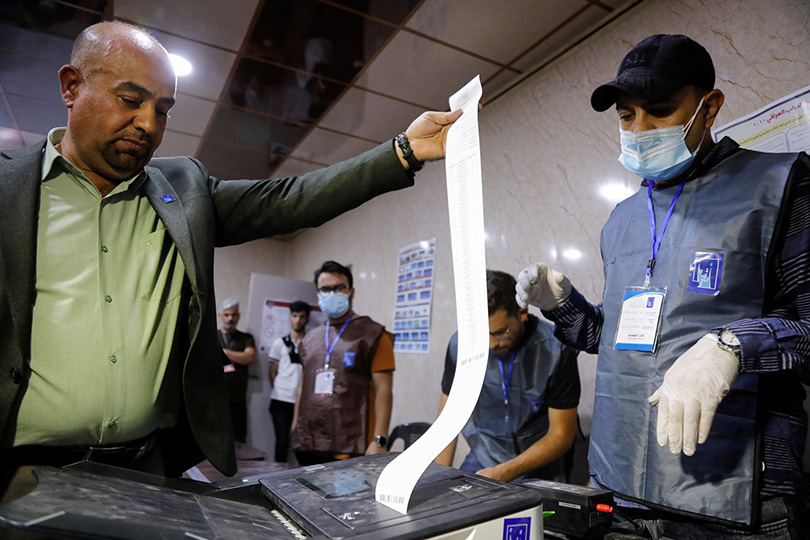By Mohammed Al-Nasrawi
In every election cycle, hopes are raised, slogans are chanted, billions are poured into campaigns, streets are flooded with banners, and debates heat up in cafes, gatherings, and on satellite channels. Politicians appear with their usual promises: "I will do this, I will achieve that." Yet, once the ballot boxes are closed and results announced, the most pressing question resurfaces in Iraqi conversations: “What’s next?”
Despite its symbolic value as a democratic practice, elections in Iraq have become, for a large segment of the population, a routine station that recycles the same faces and entrenches the power of the same factions, without bringing about the fundamental change people long for. Laws are amended, electoral districts are redrawn, yet the suffering remains: unemployment, poverty, deteriorating services, and a persistent lack of trust in the state.
Crisis of Trust or Political Deadlock?
Many Iraqis feel that the electoral process no longer holds meaning for them—not out of ignorance or lack of awareness—but because years of broken promises have left them disillusioned. Major parties spoke of “sovereignty,” “justice,” and “fighting corruption,” yet once in parliament, they became consumed by conflicts and dividing spoils.
Voter turnout in the last election did not exceed 41%, according to the electoral commission—a shocking figure that reflects a deep crisis of trust. This raises the ever-postponed question: Is the government solely responsible for this reality?
In truth, part of the government’s failure stems from citizens themselves. By choosing to boycott and leaving the field empty, they paved the way for the very forces they criticize today. Another part is due to voters who did participate, but failed to choose honest and competent candidates, opting instead for sectarian, tribal, or short-term interests. Democracy does not thrive merely through the presence of ballot boxes, but through the awareness of voters as well.
Victory: Beginning of a Crisis or an Opportunity for Change?
It is true that government formation in Iraq often turns into closed-door deals, dictated by the logic of consensus and quotas, which drains the concept of “the largest winner” of its essence and reduces parliament to a negotiation room rather than a legislative body. However, the picture is not entirely bleak.
In recent years, new, independent voices have emerged—bearing vision and courage, attempting to break the traditional mold of political performance. Some succeeded in gaining parliamentary seats, while others are still in the making. Though these experiences have yet to transform the entire scene, they lay the groundwork for a different political awareness and send hopeful signals that change is possible—if accompanied by genuine popular support, mature discourse, and continuous civic engagement.
Youth and Protest: Is There a Third Option?
The growing public anger, especially among youth, is legitimate and understandable. It reflects a clear rejection of the current political trajectory. Yet, passive boycotts alone do not bring change; in fact, they grant traditional forces free rein to persist unchecked. Change requires not just opposition, but smart engagement—building alternatives, organizing, and influencing both from within and outside the system.
What is needed today is not just criticism, but active participation, accountability, and a more refined choice of representatives. Supporting competent and honest candidates requires more than hoping they will appear; it demands giving them votes and real opportunities.
In Conclusion…
Elections may not be a miracle, but if set on the right track, and if voters participate with awareness rather than reaction, they can become a gateway to a better reality—not just a facade for a crisis-ridden system. The path to reform is long, but it begins at the ballot box, with a responsible choice—not with silent boycotts or random voting.






Comments